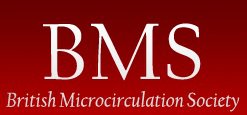This year Patricia Kelly, a PhD student at the University of Ulster was awarded a BMS laboratory visit grant (LVG) to further her research. Here she talks about her experiences during her trip to Tuebingen in Germany.
Visiting Prof. Mathias Jucker’s
research group at the Hertie-Institute for clinical brain research at the
University of Tuebingen in Germany has been a truly invaluable experience. I wish to thank the British
Microcirculation Society (BMS) for their support and to express my sincere
gratitude as the delighted recipient of the laboratory visit grant (lvg).
The open-cranial window
chamber (OCWC) preparation is a powerful research methodology allowing chronic
imaging of real-time cerebrovascular structural and functional changes in the
same mouse over time. This
technique is well established at the Hertie-Institute and has been optimised by
Prof. Jucker’s research group (1).
I would like to thank Prof. Jucker for providing me with the unique
opportunity to visit the Hertie-Institute to observe the murine OCWC surgery
being conducted by members of his research group.
The OCWC is an important
technique that will greatly enhance my research into the progressive vascular
changes in AD, mentored by Dr. Christopher Mitchell at the University of Ulster
(UU). I am keen to elucidate the
mechanisms of action of Liraglutide (Victoza®; Novo Nordisk), a
promising AD therapy shown in preclinical trials to improve both cardiovascular
dysfunction and neuropathology in transgenic mouse models of AD.
During my visit to the
Hertie Institute I gained a thorough understanding of the murine OCWC that I
observed being conducted several times by different members of Prof. Jucker’s
research group. In addition, I took
comprehensive notes on specialist instrumentation to facilitate the surgical
procedure, which will make establishing the OCWC technique at the UU much
easier.
In collaboration with the
Hertie-Institute, I will use the OCWC procedure at UU to investigate the
pharmacodynamics of Liraglutide in a transgenic mouse model of AD. This exciting and novel surgical
procedure will provide qualitative and quantitative measures of real-time
changes in live cortical vessels exposed to Liraglutide. Liraglutide is an
exciting therapy currently being evaluated in clinical trials in patients with
early AD. The findings of my study
will greatly enhance current knowledge of the mechanisms of action of
Liraglutide and provide a first author publication in collaboration with Prof.
Jucker’s research group. I would
like to thank the BMS for supporting this excellent opportunity and for their
continuing recognition and support of Early Career Investigators.
By Patricia Kelly, PhD Student
